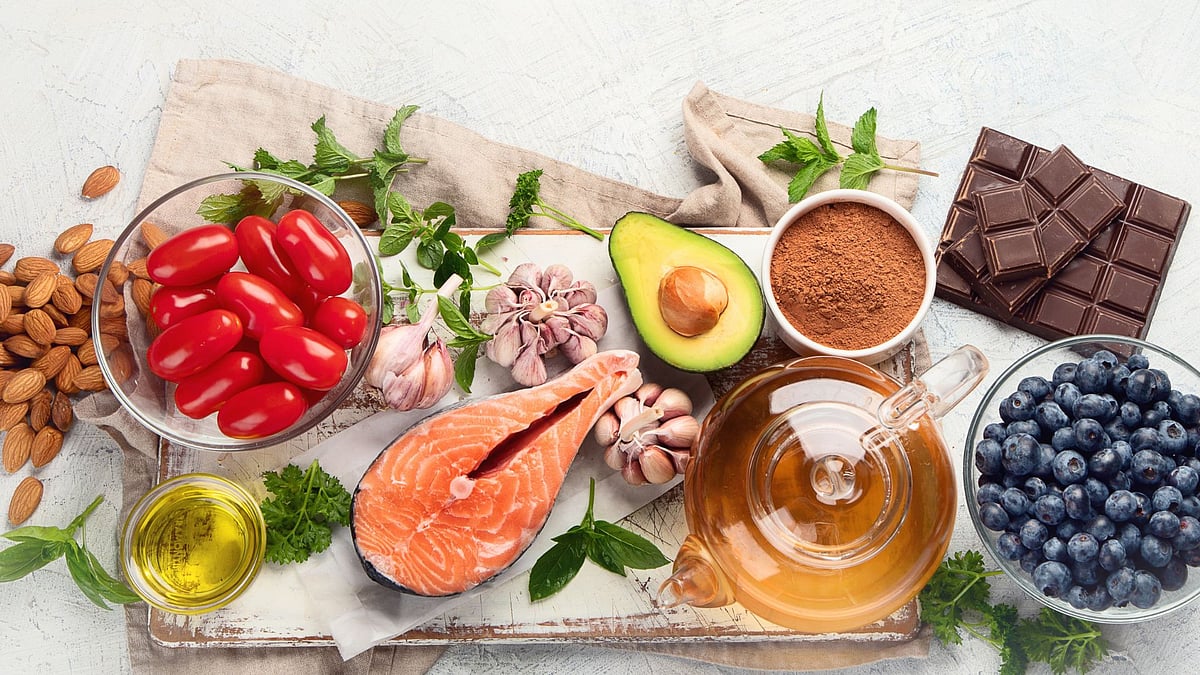An anti-inflammatory diet is a way of eating that focuses on reducing inflammation in the body-something that’s been linked to a wide range of health problems, from heart disease and arthritis to diabetes and even depression. It all started from the moment Bollywood actress Vidya Balan shared her experience with of anti-inflammatory diet that help her lose weight easily and also maintain that weight. The ‘hype’ surrounding this diet isn’t just a wellness trend; it’s rooted in growing scientific evidence.
Chronic inflammation happens when the immune system stays activated for too long, often due to stress, poor diet, lack of exercise, or exposure to toxins. While short-term inflammation is the body’s way of healing, ongoing inflammation can damage tissues and lead to disease. That’s where food comes in.

All about this diet
According to Nutritionist Khushboo Jain Tibrewala, “Inflammation is at the root of almost every modern chronic condition- from PCOS and diabetes to IBS, autoimmune disorders, fatigue, and even mental health concerns. As awareness grows, people are shifting from short-term weight loss plans to long-term anti-inflammatory eating. And rightly so.”
“Unlike restrictive trends, an inflammation-focused diet is about restoring internal balance by reducing exposure to everyday stressors, such as poor-quality fats, refined sugars, processed foods, and environmental toxins, while increasing intake of nutrient-dense, healing foods,” she added.
Foods that come under anti-inflammatory diet
The anti-inflammatory diet promotes whole, nutrient-dense foods. Think colorful fruits and vegetables, leafy greens, berries, fatty fish like salmon, nuts, seeds, olive oil, and whole grains. These foods are rich in antioxidants and omega-3 fatty acids, which help fight inflammation. Herbs and spices like turmeric and ginger are also key players.
According to Khushboo Jain, an anti-inflammatory diet helps in:
1. Stabilising blood sugar: Cutting refined carbs and balancing meals reduces insulin spikes, which are key drivers of chronic inflammation.
2. Supports gut health: Fibre-rich vegetables, seasonal fruits, fermented foods, and slow-cooked meals repair the gut lining and improve microbial diversity.
3. Maintains healthy immune function: Chronic inflammation can disrupt immune responses. A nutrient-rich, anti-inflammatory diet helps keep the immune system balanced and functioning optimally.
4. Improves mood and energy: With lower inflammatory load, the body can redirect resources toward brain function, hormone regulation, and cellular repair.
5. Reduces pain and discomfort: Many experience relief from migraines, joint pain, skin issues, and bloating after even a few weeks of consistent anti-inflammatory eating.
In essence, the anti-inflammatory diet isn’t about restriction or weight loss-though those can be benefits. It’s about nourishing your body with foods that help it thrive. And in a world full of stress and fast food, that message resonates deeply.
